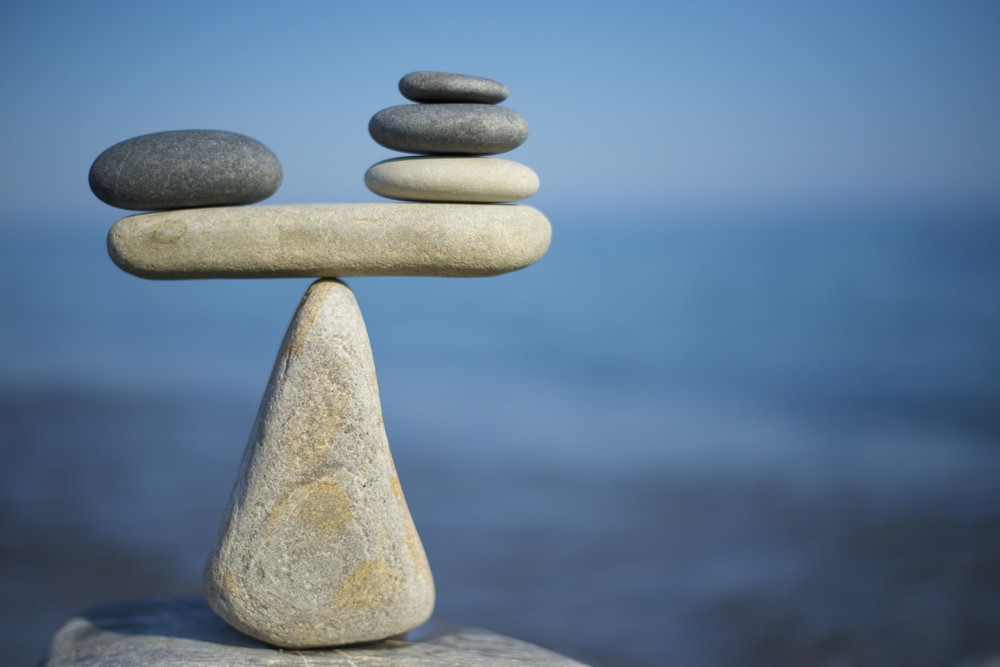
High blood pressure, also known as hypertension, is often thought of as a condition affecting older adults. But the truth is, young adults are increasingly experiencing this health concern. This can be concerning, but understanding the causes and taking steps to manage it can help you stay healthy.
This article explores the reasons of high blood pressure in young adults, along with tips for prevention and treatment. Let’s take control of your heart health!
What is High Blood Pressure?
Blood pressure is the force exerted by your blood against the walls of your arteries as your heart pumps. When this force is consistently too high, it’s called high blood pressure. Over time, uncontrolled high blood pressure can damage your arteries and increase your risk of heart disease, stroke, kidney disease, and other serious health problems.
Also Read: What Are Palliative and Hospice Care? Understanding Your Options for Comfort and Care
Why is High Blood Pressure on the Rise in Young Adults?
Traditionally, high blood pressure was more common in older adults. However, recent trends show an increase in young adults diagnosed with this condition. Several factors might be contributing to this:
- Unhealthy Lifestyle Choices: Diet high in salt, processed foods, and sugary drinks, coupled with a lack of physical activity, can contribute to high blood pressure in young adults.

- Weight Gain: Being overweight or obese is a major risk factor for high blood pressure at any age.
- Stress: Chronic stress can lead to unhealthy habits like overeating or smoking, which can increase blood pressure.
- Family History: If you have a family history of high blood pressure, you’re more likely to develop it yourself.
- Sleep Apnea: This sleep disorder, where breathing repeatedly stops and starts, can disrupt sleep quality and contribute to high blood pressure.
- Certain Medications: Some medications, like birth control pills or certain pain relievers, can raise blood pressure in some people.
Also Read: 8 Reasons You May Be Gaining Weight Unintentionally: A Comprehensive Guide
Spotting the Signs: Symptoms of High Blood Pressure
Often, there are no noticeable symptoms in the early stages of high blood pressure. This is why it’s crucial to get regular checkups, including blood pressure readings. However, some people might experience symptoms like:
- Headaches
- Dizziness
- Fatigue
- Blurred vision
- Chest pain
- Difficulty breathing (in severe cases)

Taking Control: Ways to Manage High Blood Pressure in Young Adults
The good news is that high blood pressure in young adults is often controllable with lifestyle changes. Here are some tips to help you manage your blood pressure:
- Eat a Healthy Diet: Focus on fruits, vegetables, whole grains, and lean protein. Limit processed foods, saturated and unhealthy fats, and added sugar.
- Maintain a Healthy Weight: Losing even a small amount of weight can significantly improve blood pressure.
- Exercise Regularly: Aim for at least 30 minutes of moderate-intensity exercise most days of the week. Brisk walking, biking, swimming, or dancing are all great options.
- Manage Stress: Techniques like yoga, meditation, or deep breathing exercises can help reduce stress and lower blood pressure.
- Reduce Salt Intake: Aim to consume less than 2,300 milligrams of sodium per day. Read food labels carefully and limit processed foods that are often high in salt.
- Limit Alcohol: Excessive alcohol consumption can raise blood pressure.
- Don’t Smoke: Smoking damages your arteries and increases your risk of heart disease, stroke, and other health problems.
- Get Enough Sleep: Aim for 7-8 hours of quality sleep each night.
- See Your Doctor Regularly: Regular checkups are essential for monitoring your blood pressure and adjusting your treatment plan if needed. Your doctor can also screen for other health conditions that might be contributing to high blood pressure.
Also Read: Alcohol Moderation or Abstinence? Finding the Right Choice for You
Treatment Options for High Blood Pressure in Young Adults
In some cases, lifestyle changes may not be enough to control high blood pressure. Your doctor might prescribe medication to help lower your blood pressure. These medications work in different ways, and your doctor will choose the best option for your individual needs. It’s important to take your medication as prescribed and attend follow-up appointments with your doctor.
Living Well with High Blood Pressure: The Road to a Healthy Future
While high blood pressure might seem daunting, remember that you can take control of your health. By adopting healthy lifestyle changes and working with your doctor, you can manage your blood pressure and live a long and healthy life. Here are some additional resources that might be helpful:
- American Heart Association: https://www.heart.org/
- National Institutes of Health: https://www.nih.gov/

Living Well with High Blood Pressure: Your Support System
Don’t Go It Alone:
Managing high blood pressure requires commitment and sometimes, a little support can make a big difference. Here are some ways to build your support system:
- Talk to Your Doctor: Your doctor is your partner in managing your health. Discuss your concerns and goals, and ask for their guidance.
- Connect with a Registered Dietitian: A registered dietitian can help you create a healthy eating plan that fits your preferences and supports your blood pressure goals.
- Find a Workout Buddy: Having a workout partner can keep you motivated and make exercising more enjoyable.
- Join a Support Group: Connecting with others who are also managing high blood pressure can provide valuable support, encouragement, and shared experiences. Online forums or local support groups can be great resources.
- Lean on Your Loved Ones: Tell your family and friends about your condition and how they can support you. Their understanding and encouragement can go a long way.
Also Read: What is Cyberbullying and Its Impact on Children’s Mental Health? A Complete Guide
Living a Balanced Life:
While managing high blood pressure is important, it shouldn’t take over your life. Here are some tips for creating a healthy balance:
- Focus on Progress, Not Perfection: Making small, sustainable changes to your lifestyle is more effective than drastic measures you can’t maintain.

- Reward Yourself: Celebrate your achievements, big or small. This will help you stay motivated on your journey to healthier blood pressure.
- Make Time for Stress Relief: Schedule time for activities you enjoy, whether it’s reading, spending time in nature, or listening to music. Relaxation is key to managing stress and keeping your blood pressure in check.
- Don’t Be Afraid to Ask for Help: If you’re struggling with lifestyle changes or feeling overwhelmed, talk to your doctor or a therapist. They can provide personalized guidance and support.
Also Read: Forest Bathing And Nature Therapy: What It Is and Where to Do It
Final Thoughts
High blood pressure might be a concern, but it doesn’t have to define your life. By adopting healthy habits, working with your doctor, and building a strong support system, you can effectively manage your blood pressure and live a healthy and fulfilling life. Remember, knowledge is power. Educate yourself about high blood pressure, take proactive steps towards managing it, and embrace a healthy future!
Causes of High Blood Pressure in Young Adults: FAQs
High blood pressure in young adults can come as a surprise. This FAQ section is designed to answer your questions and empower you to take charge of your heart health.
- I eat healthy and exercise regularly. Why do I have high blood pressure?
There are several factors that can contribute to high blood pressure, even in young adults who prioritize healthy habits. Genetics can play a role, so if you have a family history of high blood pressure, you might be more susceptible. Stress, even if you manage your diet and exercise, can also elevate blood pressure. Certain medical conditions, like sleep apnea or kidney disease, can also contribute. Discuss any concerns with your doctor to determine the underlying cause.
- Is there a difference between the causes of high blood pressure in young adults vs. older adults?
While some risk factors, like genetics and family history, are similar across age groups, there are some key differences. Unhealthy lifestyle choices, such as a diet high in sodium and processed foods, lack of physical activity, and smoking, are more prevalent among young adults and can significantly contribute to high blood pressure in this age group. As we age, other factors like stiffening arteries can become more prominent contributors to high blood pressure.
- How much salt is too much salt for someone with high blood pressure?
The American Heart Association recommends limiting sodium intake to less than 2,300 milligrams per day. However, for people with high blood pressure, an even stricter limit of 1,500 milligrams per day might be recommended by your doctor. Reading food labels carefully and opting for fresh ingredients over processed foods can help you stay within this recommended range.
- I’m stressed all the time. Can stress really cause high blood pressure?
Chronic stress can definitely contribute to high blood pressure. When you’re stressed, your body releases hormones that cause your heart rate and blood pressure to rise. Over time, this can damage your arteries and lead to high blood pressure. Finding healthy ways to manage stress, such as exercise, meditation, or yoga, is crucial for your overall health and blood pressure control.
- I don’t feel any symptoms. Should I still be worried about high blood pressure?
High blood pressure often has no noticeable symptoms in the early stages, which is why regular checkups with your doctor are so important. Early detection and treatment can help prevent serious health complications down the road. If you have any risk factors for high blood pressure, like a family history or an unhealthy lifestyle, talk to your doctor about how often you should be screened.
- Can medications I take for other conditions cause high blood pressure?
Some medications, like birth control pills or certain pain relievers, can raise blood pressure in some people. It’s important to discuss all medications you take with your doctor, including over-the-counter drugs and supplements. They can advise you on potential interactions and recommend alternative medications if needed.
- I’m worried about taking medication for high blood pressure for the rest of my life.
While medication might be necessary in some cases to control high blood pressure, it doesn’t have to be a lifelong commitment. Lifestyle changes can significantly improve blood pressure control. With a healthy diet, regular exercise, and stress management techniques, you might be able to lower your blood pressure enough to manage it without medication. Discuss your goals with your doctor and work together to create a personalized treatment plan.
- How can I tell if I have sleep apnea?
Sleep apnea is a sleep disorder where breathing repeatedly stops and starts. Symptoms include loud snoring, waking up gasping for air, and daytime fatigue. If you suspect you might have sleep apnea, talk to your doctor. Treating sleep apnea can significantly improve your sleep quality and potentially lower your blood pressure.
- Is there anything I can do to prevent high blood pressure in the first place?
Absolutely! Living a healthy lifestyle is the best way to prevent high blood pressure, regardless of your age. This includes eating a healthy diet, maintaining a healthy weight, exercising regularly, managing stress, and getting enough sleep. If you have a family history of high blood pressure, being extra vigilant about these healthy habits is crucial.
- I’m young and healthy. Should I still be concerned about high blood pressure?
High blood pressure can have serious consequences if left untreated, even in young adults. Early detection and management are key to preventing complications like heart disease, stroke, and kidney disease. Don’t hesitate to talk to your doctor about any concerns you have about your blood pressure. Taking charge of your health now can ensure a long and healthy future.

